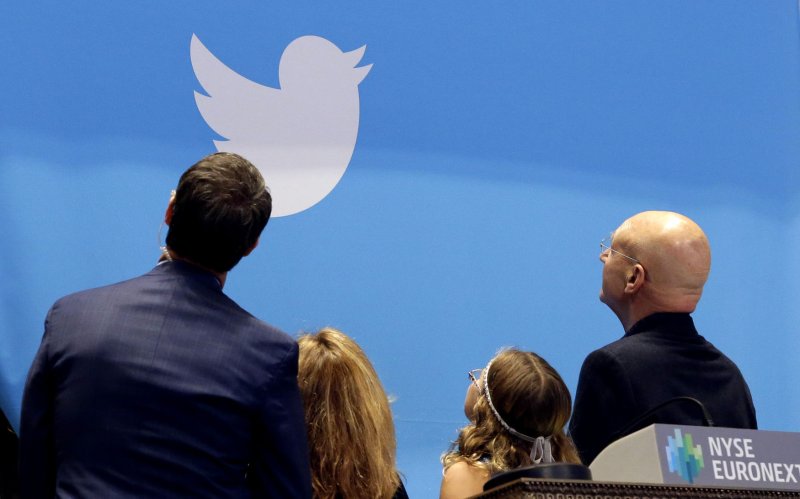Guests of Twitter look at a camera before ringing the opening bell while waiting for shares of Twitter to be traded for the first time at the Twitter IPO on the floor of the New York Stock Exchange on Wall Street In New York City on November 7, 2013. UPI/John Angelillo |
License Photo
SAN DIEGO, Nov. 7 (UPI) -- By 2015 the media requested and delivered to U.S. consumers on mobile devices and at home would take more than 15 hours a day to see or hear, a study suggests.
That total volume is equal to 6.9 million-million gigabytes of information, or a daily consumption of nine DVDs worth of data per person per day, researchers at the University of California, San Diego, reported Thursday.
While that would seem to leave little time for working or sleeping or anything else, media delivered is not a measure of attention or comprehension of that media, study author James E. Short said.
"One can actually have more than 24 hours in a media day," he said. "As we increase the number of simultaneous media streams going into the home, and increase our multi-tasking behaviors, a lot of content assumes the role of background or secondary content streams."
The study looked at media consumed in and out of the home, excluding workplace media, between 2008 and 2015, with "media" defined in 30 categories such as television, social media, computer gaming and other forms.
While the amount of media suggests the risk of sensory overload, that's not necessarily the case, Short said.
"While machines can always overload us, it's more a question of, how can we design these systems to produce meaningful value?" he said. "That's the critical challenge as we speed further into the age of digitally-based information."















